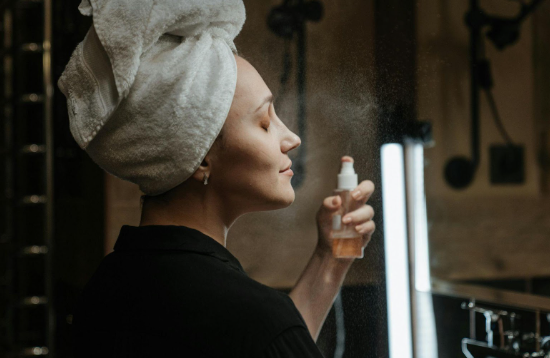The Importance of Sunscreen and Raising Awareness During Skin Cancer Awareness Month
Every year, millions of new cases of skin cancer are diagnosed, making it one of the most common types of cancer in the world. A significant contributor to this statistic is prolonged and unprotected exposure to ultraviolet (UV) radiation from the sun. As we observe Skin Cancer Awareness Month, it's crucial to understand the vital role sunscreen plays in protecting our skin and reducing the risk of skin cancer.
Understanding Skin Cancer
Skin cancer occurs when abnormal skin cells grow uncontrollably due to DNA damage, often caused by UV radiation from the sun or tanning beds. The following are the three main forms of skin cancer:
- Basal Cell Carcinoma (BCC): The most common form, often appearing as a pearly or flesh-colored bump. While it rarely spreads, it can cause significant tissue damage if untreated.
- Squamous Cell Carcinoma (SCC): Typically presents as a scaly red patch or open sore and can spread if not treated promptly.
- Melanoma: The deadliest form, developing in melanocytes (pigment-producing cells). It often appears as an irregular mole and can spread rapidly if not detected early.
The Role of Sunscreen in Skin Cancer Prevention
Sunscreen acts as a protective barrier, shielding your skin from the harmful effects of UV radiation. Regular use of sunscreen has been shown to decrease the risk of developing skin cancers, including melanoma, by filtering out damaging UV rays.
Beyond cancer prevention, sunscreen also helps prevent premature aging, such as wrinkles and age spots, caused by sun exposure. Using broad-spectrum sunscreen provides protection against both UVA and UVB rays, reducing the risk of sun damage and long-term health concerns.
- UVA Rays: Penetrate deep into the skin, causing premature aging and increasing cancer risk.
- UVB Rays: Primarily responsible for sunburns and contribute significantly to skin cancer development.
Choosing the Right Sunscreen
Understanding the difference between chemical and mineral sunscreens can help you choose the most suitable option for your skin. Selecting a sunscreen based on your skin type can enhance comfort and prevent unwanted side effects.
Chemical Sunscreens
These contain active ingredients such as avobenzone and oxybenzone, which absorb UV rays and convert them into heat before they penetrate the skin. They are lightweight and blend easily but may irritate sensitive skin.
Mineral (Physical) Sunscreens
These use natural blockers like zinc oxide and titanium dioxide, which sit on the skin's surface and reflect UV rays. They are recommended for sensitive skin but can leave a white cast, especially on darker skin tones.
Key Factors to Consider
With a variety of options available, understanding key factors can help you make an informed decision tailored to your skin type, lifestyle, and environmental exposure. Look for a broad-spectrum sunscreen to offer protection against both UVA rays, which cause premature aging, and UVB rays, which lead to sunburn and increase the risk of skin cancer.
However, higher SPF levels provide only slightly better protection and still require regular reapplication. If you plan to swim or sweat, opt for a water-resistant formula, which maintains effectiveness for 40 to 80 minutes before needing to be reapplied.
Best Practices for Sunscreen Application
Even the best sunscreen won’t work if it’s not used properly. To ensure your skin stays safe from harmful UV rays, follow these essential sunscreen application techniques.
Apply Enough Sunscreen
Most people use too little sunscreen, which reduces its effectiveness. You need at least one ounce (about a shot glass full) to cover your whole body. For your face alone, use a nickel-sized amount. Apply a thick, even layer to all exposed skin, and don’t forget easy-to-miss spots like your ears, neck, hands, and feet.
Reapply Every Two Hours
Reapply at least every two hours, especially if you’re sweating or swimming. If you dry off with a towel, put on another layer right away. No sunscreen is completely waterproof or sweatproof, so regular reapplication is key.
Cover Often-Missed Areas
Some areas are more prone to skin cancer but often go unprotected. Don’t forget to apply sunscreen to your ears, scalp (especially if you have thinning hair), lips (use SPF lip balm), neck, hands, and feet. These spots get just as much sun exposure as the rest of your body.
Make Sunscreen Part of Your Daily Routine
Apply it every morning, even if it’s cloudy. If you wear makeup, use a setting spray or powder with SPF for extra coverage throughout the day. Daily sunscreen use helps prevent long-term sun damage and reduces your risk of skin cancer.
Our Comprehensive Skin Cancer Care Services
Our services encompass every aspect of prevention, diagnosis, and treatment, tailored to meet your individual needs. We offer you:
Preventive Screenings
Regular skin cancer screenings are vital for early detection and successful treatment. Our team offers thorough examinations to identify any suspicious lesions or changes in your skin. We recommend annual screenings, especially if you have a history of sun exposure or tanning bed use.
Advanced Diagnostic Techniques
If a suspicious area is identified, we utilize advanced diagnostic methods, including biopsies, to determine the presence and type of skin cancer. This precise approach allows us to develop an effective treatment plan tailored to your specific condition.
Specialized Surgical Treatments
For confirmed cases of skin cancer, we offer specialized surgical treatments, including Mohs micrographic surgery. This precise technique removes cancerous tissue while preserving as much healthy skin as possible, ensuring both effective treatment and optimal cosmetic outcomes.
Our team at
Northshore Dermatology is committed to guiding you through prevention strategies and post-treatment care, ensuring you feel informed and supported at every step.
Book your skin cancer screening and take the first step toward lifelong skin health with us today!


